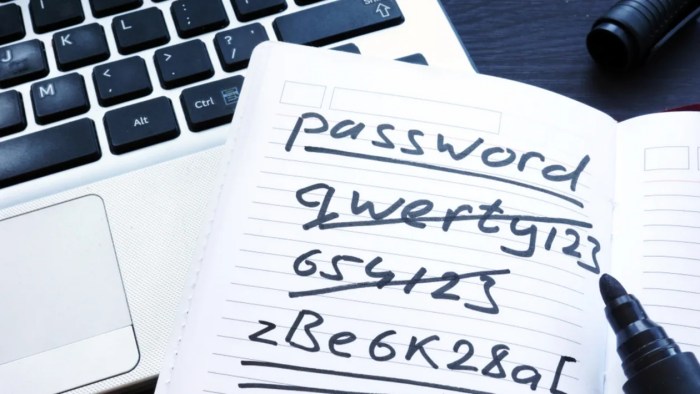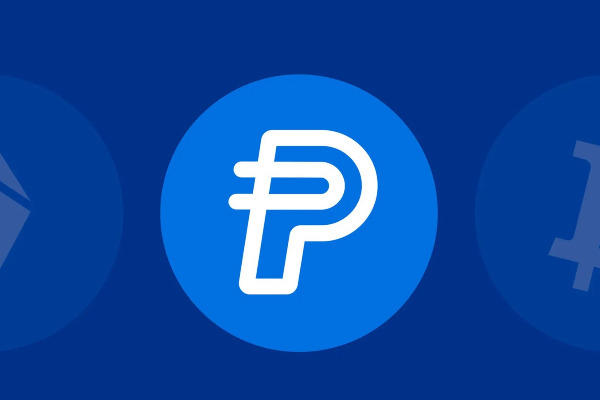How to prevent malicious attacks and protect your coins from being stolen by hackers? Here's what you can do to secure your crypto account.

Regarding crypto accounts, security is often one user's top priority. After all, who wants their hard-earned crypto to disappear instantly due to hackers? Even though you can use the services of Cryptohunter to claim it back, the duration and the budget needed are, as you would be expected, very long and extremely pricey.
As time passes, hackers become sneakier and smarter when cracking your account passwords, either by guessing your password manually or hacking your email server. Nevertheless, it would be best if you were more careful by strengthening the account security so that no one can access it except you.
Levels of Security
Cryptocurrency account security depends on your ability to maintain login credentials like managing passwords. Of course, with hundreds of online accounts, using different passwords for each platform can be quite a hassle. In the end, many people use the same password for all accounts. Some of them even deliberately create weak passwords.
Those practices make it significantly easier for hackers to access your account and steal your assets. Without proper protection, your account will be very vulnerable to cybercrime. Believe it or not, your identity can be leaked in hours and even minutes, depending on the difficulty level of your password. Without further ado, let's see how safe your crypto account is by your password's quality.
1. Low-Level Password Security
Does your crypto account password contain the words "password", "qwerty", or maybe a combination of numbers "1234567890" in a row? Then you can be an easy target for hackers to break into your account. In addition, including your name, your father's name, or your birthday as a password is a big mistake as they are just as easy to break.
Avoid including your name, date of birth, or other personal references, since accounts with easy-to-guess passwords are among the most at risk of harm. If you want to be safe from hackers, try not to enter any personal details into a password.
Luckily, top crypto wallet providers tell their clients to create a complex password when creating an account and automatically reject it if the password is too weak.
2. Medium-Level Password Security
If you find remembering and noting complicated passwords difficult, consider using a password manager. A password manager is an encrypted vault that safeguards the login credentials for all your accounts and applications.
A password manager can keep track of all the passwords on each website because they are all stored in one location that only you can access using a master password. Once your password is saved in a secure password manager, it will be auto-filled when you visit the site where your log-in information has been saved. This can prevent you from entering your credentials on phishing sites, as the password manager doesn't recognize those sites.
These free services include additional features, such as syncing passwords across devices. Some services will even inspect your habits and ensure you are not using the same password in multiple locations. But, if the password manager is hacked or your hardware wallet is lost, this option will be worthless.
3. High-Level Password Security
Even if you have followed the security measures, your password is unsafe because the site your account is registered in falls victim to hacking. We can see on the news daily how various companies report cyberattacks against their clients' s, from popular social media platforms like Facebook to government institutions. Thus, hacking your unlicensed crypto wallet provider and robbing your coins should not be difficult for hackers.
Luckily, there is a tool to mitigate this kind of vulnerability: WebAuthn, a web standard for authenticating users on applications and services via asymmetric key cryptography.
With WebAuthn, the company won't store passwords, but you are assigned public and private key pairs. The public key is shared with the company to prove your identity, while the private key transmits data to the account and proves that the device holds the private key without exposing it. WebAuthn protects users from exposure to hacks, but if a thief can gain physical access to your device, they may be automatically able to approach your key pairs.
How to Strengthen Your Crypto Account Security
The three types of password security above, of course, have advantages and disadvantages. As everyone knows, there is no 100% anti-hacking protection. But don't worry, because whatever ways you choose to protect your account, there are tips you can follow to strengthen your security. If your account security is still weak, please revise it immediately by following the steps below.
1. Passphrase
Instead of making it too complicated, try using random phrases. A passphrase is more effective than a password, which contains a random string of words, such as "DanielTissueGlassSpring" or "SuperCasetteKeyboardDecember." That way, you will have a hard time for hackers to guess it, but it is still easy to remember.
The more random the string of words in the passphrase, the more secure your crypto account will be. Ensure your password combination doesn't contain common words, phrases, or combinations, as there are hacks called "dictionary attacks". This system is a hacking algorithm that systematically enters every word in the dictionary to try to determine the password.
2. Complex Password
Have you ever wanted to sign up on a site but failed because the password wasn't strong enough? Generally, passwords must have more than eight characters, uppercase and lowercase letters, numbers, and symbols. It might be unpleasant, but websites that instruct users to create complex passwords when setting up accounts are saving you from being hacked.
Surprisingly, the first step in securing your password is to make it as long and complex as possible. The longer and more complex your password is, the harder it will be for hackers to predict. The more you mix it up, the harder it will be to guess. You can substitute zero (0) for the letter O, @ for the letter A, or $ for the letter S.
Ideally, a strong password consists of more than 12 characters and contains both upper and lower-case letters, numbers, symbols, easy-to-guess information, and no common words and phrases.
3. Two-Factor Authentication (2FA)
Another way to add security to your crypto account is to perform two-factor authentication (2FA). While 2FA doesn't directly protect your password, it can defend against unwelcome access to your account.
To gain entry to your account, 2FA usually requires you to enter a verification code that will be sent via SMS. 2FA has become the security standard in the crypto industry, providing a strong second layer of protection. However, 2FA using SMS codes remains vulnerable if hackers attack your SIM and steal the information on the SIM card through advanced telecommunications fraud methods.
For this reason, most crypto exchanges recommend using Google Authenticator or a similar app that doesn't rely on text messaging, as SMS is not immune to SIM vulnerabilities. Unfortunately, although 2FA generates a random code that expires every 60 seconds, this method is still prone to fail if an attacker gains access to your physical device.
4. Biometric Authentication
Another level of password protection, which can be combined with WebAuthn for maximum security, is biometric authentication.
Biometric authentication uses human body parts to authenticate your crypto account. These biometric elements are often fingerprints or scans of eyes or face, even body measurements.
As it happens, biometric authentication still presents obstacles if there are differences in biometric activity on your body, such as when you have eye pain or your finger is injured. Also, you can't change biometric authentication as simple as changing a normal password.
EndNote
With all the risks that come with it, it's no wonder everyone says crypto space is like playing with fire. Thank goodness there are numerous ways to minimize cyberattacks that target your crypto account, ranging from easy to difficult.
Although password security technology has developed rapidly, no absolute routine protects users from every potential online risk. Still, sticking to the various methods above can reduce your crypto account's exposure to hacking, scams, and other malicious activity. For that, stay up to date with crypto information so that if there is a new safeguard method, you can immediately apply it.
Crypto exchanges also play an essential role in your account security. That's why some exchange listers sort the best crypto exchanges by their security. One example is the list of cryptocurrency exchanges ranked by their cybersecurity scores. That score is usually based on several security elements inspected by an independent company specializing in cybersecurity.

 Dedicated FREE FOREX VPS
Dedicated FREE FOREX VPS Free FOREX Virtual Private Server
Free FOREX Virtual Private Server MT4 Demo Contest, Get $500
MT4 Demo Contest, Get $500 Sign Up for an Account, Claim 60% Deposit Bonus
Sign Up for an Account, Claim 60% Deposit Bonus Free MT4/MT5 VPS 2024
Free MT4/MT5 VPS 2024 Send E-mail and Get Free Merchandise
Send E-mail and Get Free Merchandise $1K Refer a Friend Bonus for Pepperstone Pro clients
$1K Refer a Friend Bonus for Pepperstone Pro clients Maximize Your Earnings with 100% Deposit bonus
Maximize Your Earnings with 100% Deposit bonus Trade to Win, $5,000 Monthly Demo Contest
Trade to Win, $5,000 Monthly Demo Contest Claim 30% + 15% Deposit Bonus from LiteFinance
Claim 30% + 15% Deposit Bonus from LiteFinance






 Bitcoin
Bitcoin Ethereum
Ethereum Tether
Tether BNB
BNB Solana
Solana USDC
USDC XRP
XRP Dogecoin
Dogecoin Toncoin
Toncoin Cardano
Cardano